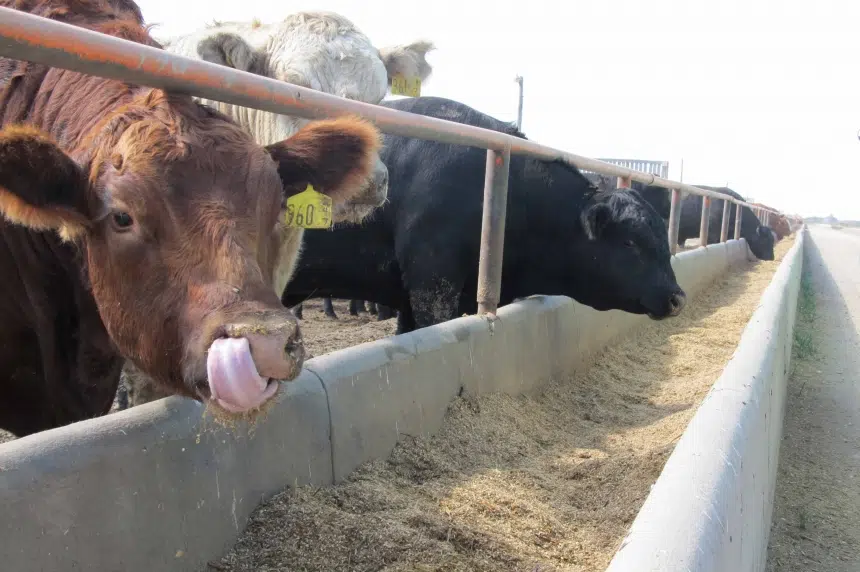The dry spring is extending into a dry summer, and ranchers in Saskatchewan could lose money and even cattle.
The hay and forage crops in Saskatchewan have been “severely reduced”, according to the province.
Bob Ivey is a rancher near Ituna, northwest of Melville. He said they’ve had almost no rain.
“I don’t think it would total up to half an inch since breakup.”
He said the effect on hay has been especially tough.
“Between the frost (early in the spring), and the lack of moisture, hay production is going to be down pretty dramatically.”
One rancher said the price of hay has gone up 300 per cent.
Ivey said he is going to cut most of his oat crops down early to get feed.
“We think that’s a better route to go for us, whatever’s there we’ll take it early.”
Some farmers will pay the higher prices, but Ivey said for some, there aren’t many options.
“Guys that are in the ranching country where maybe there isn’t much grain grown, or much alternative feeds, it likely means culling some out of the herd.”
The province has teamed up with the federal government to try to help.
The deadline for seeding greenfeed crops has been extended from June 30 to July 15 through the Saskatchewan Crop Insurance Program. Producers who have crop insurance will also now be able to insure any cereal greenfeed crop.
Some plans with crop insurance customers will be more flexible. People who want to use their annual crops for grazing or feed are encouraged to contact their local crop insurance offices. Customers will have coverage if their annual crops suffer from dry conditions. Registering for pre-harvest claims will be allowed, as well as post-harvest claims for people with reduced yields.
The Agri-Stability Program allows options for producers looking to access part of their benefits early.
When it comes to pastures, the Ministry of Agriculture said it is asking other organizations to consider opening any conservation lands for grazing or forage. The ministry will also allow sub-leasing of Crown lease land.
“By being flexible with existing programs we ar hoping to help producers source the feed they need for their livestock,” said Lyle Stewart, Saskatchewan Agriculture Minister.
LSchick@rawlco.com
Follow on Twitter: @LMSchickler











